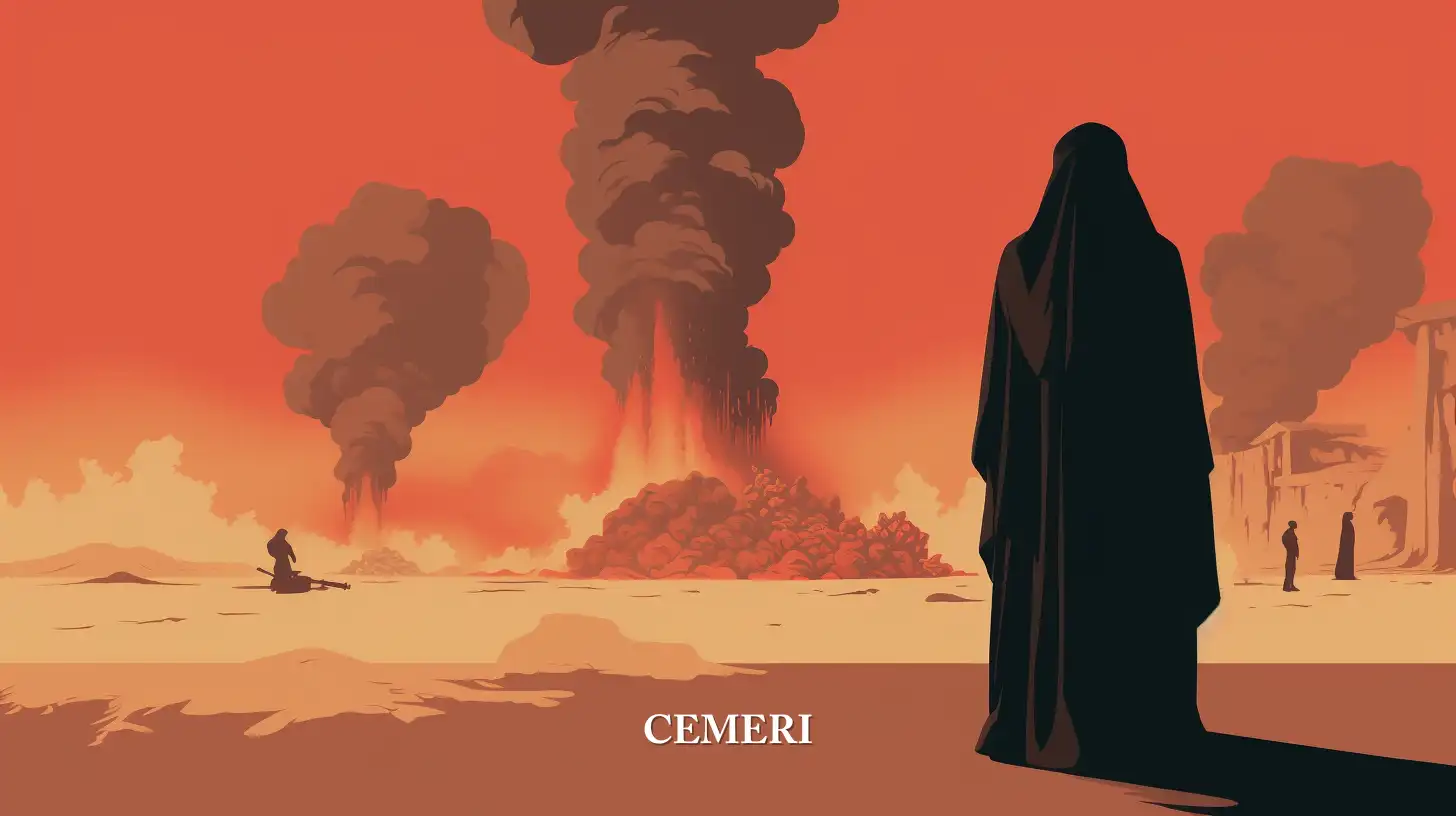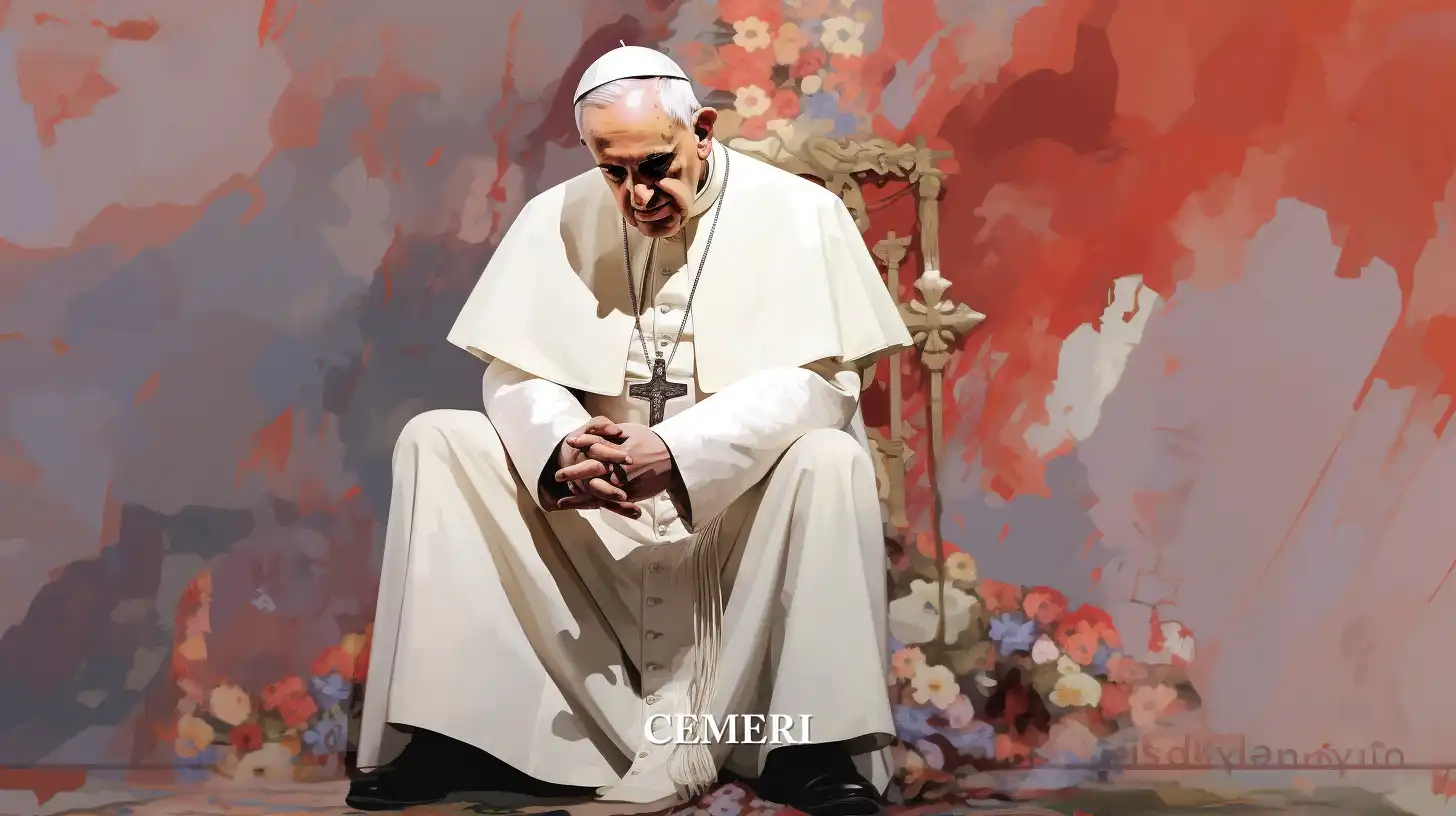Opinion
Mauricio Valentinoti Palacios S.
Where is ISIS?
- ISIS or the Islamic State is still alive, it is in many places and its strength is increasing, thanks to its ability to reinvent itself in a world in crisis.

**ISIS is the acronym for the Islamic State of Iraq and Syria. A terrorist group with international media coverage that in 2015 carried out deplorable attacks in the city of Paris and a series of attacks in Europe. Without forgetting that they carried out hundreds of attacks of equal and greater caliber in practically all the countries of West Asia and North Africa. As well as an aberrational ethnic-religious persecution of the Yazidis in Iraq, riddled with crimes against humanity.
In 2015, the Islamic State controlled almost 110,000 square kilometers of territory. Mainly within the territory of Iraq, Syria and Libya, right at the gates of the southern Turkish border[1]. That is, they controlled a proto-state the size of Great Britain with access to the resources and labor of that area. After military efforts by a desynchronized mix of Iraqi, Arab, Russian, American and European forces, against its worrying growth, by 2019 the group controlled only 2% of said territory. By 2020, besieged like the rest of the world by the coronavirus pandemic, the Islamic State ceased to be a proto-state and began to administer this territory defensively and with no intention of conducting attacks abroad[[2]](# _ftn2). Which practically reduced all his hoarding in the media.
The question is, where is ISIS? Did they stay cordoned off in that area? Are they no longer dangerous? The answer is no to both questions. The terrorist group does not reside exclusively in that territory and still has the potential to pose a significant threat to stability and peace. Both in its immediate areas and in Western countries. Even with a figure of between 20 and 27 thousand active combatants[3], it may be even more worrisome today than in the past decade.
Firstly, because the Islamic State was forced to reinvent itself, like any other organization waged in the context of an annihilating crisis and bankruptcy. They began to withdraw from their "caliphate" to look for new territories in which to settle. And while they have not completely relinquished their small areas of control in Iraq and Syria, this new flexibility of mobility gives them an enormous advantage against the national jurisdictions of the states that persecute them. The new territories where they maintain trenches extend considerably throughout the entire hemisphere.
In the eastern region of Puntland, in the “horn” of Somalia, stands a force of less than a thousand fighters responding to the actions of the local government[4]. The islands of Vamizi and Mecungo in Mozambique, home to a luxury resort where world-famous stars have vacationed, were taken over by armed Islamic State commandos, who burned the hotels and imposed sharia law on the residents; where they also seek to establish the new Islamic State of the Central African provinces[5]. This last “state project” is joined by the territory controlled by ISIS in the Democratic Republic of the Congo, based in North Kivu and in the Ituri provinces of the country. It is here where the regional cacique, Musa Baluku, has created endless audiovisual content to spread over the internet and invite the faithful to his cause to join the new caliphate. Not to mention the atrocity of his actions in the Congolese villages, where in 2020 more than 840 civilians were murdered according to Ugandan government reports [\ [6 ]] (#_ftn6). On the other hand, the presence of Islamic State cells in India has been increasing, to the extent that local political leaders of Pakistani descent have been accused of being sympathizers of these cells. India's National Intelligence Agency has conducted operations with successful arrests of ISIS members in Delhi (the capital), Karnataka, Kerala, Kannur and Malappuram[7].
However, the influence of the group is not limited to the territorial borders of its areas of control. In addition to these areas, it is known that the Islamic State still has thousands of sympathizers (or commonly called "lone wolves") in countries around the world, including Europe and North America. Only in 2020, the terrorist group asked said members not to travel to carry out attacks in Europe for fear of the coronavirus or “the new plague of God”[8]. Said communication was sent through its new weekly bulletin al-Naba. Which, like its first magazine Dabiq, has been since its origins the favorite digital medium of the terrorist group for the proliferation of its discourse[9] .
However, thanks to the digital manhunt carried out by the cyber-security forces of the European Union and the United States, it is increasingly difficult for these "lone wolves" to access the official content of the terrorist group. Situation that they have been able to solve by obtaining information from other digital platforms. From digital outlets of dubious provenance such as Tebyan, where they have openly criticized the oppression of a global community of Muslims on hate speech engendered in children through American animated films, disguising themselves in articles on language oppression[10] . Even unconfirmed Twitter accounts, but with considerable access to information released by ISIS.
Whether in Telegramm groups or in the previously described media, the terrorist group's propaganda always finds a way to reach the ears of young people all over the planet. The Islamic State brand is strong in the sense that it captivates its audience, who are ignorant of Islam's tenets of respect and peace. They exalt an apparent heroism of their jihadists for the defense of "oppressed Muslims". In addition to providing its audience with practical manuals to reach the group's camps from anywhere in the world. As well as where to stay informed by official sources about the events of the organization and its upcoming plans[11].
And it is not by chance that the name of ISIS has begun to resonate again, after the attack in Baghdad after the inauguration of Biden. There is serious concern among the Iraqi authorities about the group's resurgence. Although the control of the Islamic State is practically decimated in Iraq, cells continue to appear that trigger guerrilla-style attacks[12]. In part, this is due to the impressive recruiting apparatus the group has developed, with years of experience living underground leading them to learn how to survive.
In answer to the question, ISIS is in many places and its strength is increasing day by day. Its new fighters come mainly from Iraq and Syria, but also from their new territories of influence. Not to mention their acolytes or "lone wolves", who are just as dangerous, in countries far away in the Middle East. Although the new leader Muhammad Said Abdal Rahman al Mawla and the group's administration are not in the best condition, their large propaganda machine and their fanatical diaspora in other regions of the world mean that the Islamic State continues to be one of the biggest threats to the global community security[13]. We must carefully follow their movements and still not let our guard down for now.**
Sources
[1] Callimachi, Rukmini [@rcallimachi] (17 October 2017). «4. In an email, US-backed Coalition fighting ISIS told me that of the 104,000 square kms the group held in Iraq/Syria, 93,790 is liberated» (Tweet) – via Twitter.
[2] Edición. (2019). Although they have been besieged by Russia, Iran, and the regime for two years, thousands of ISIS members are still within an area of 4000 km² without any intention to launch a military operation against them. Syrian Observatory for Human Rights. Recuperado de: https://www.syriahr.com/en/117051/
[3] ONU. (2020). El ISIS busca resurgir de sus cenizas y adquirir más relevancia global. Consejo de Seguridad – Organización de las Naciones Unidas. Recuperado de: https://news.un.org/es/story/2020/02/1469272
[4] Maruf, H. (2017). Somali Officials Condemn Attacks, Vow Revenge. Voice of America News. Recuperado de: https://www.voanews.com/africa/somali-officials-condemn-attacks-vow-revenge
[5] Aoraha, C. (2020). ISIS take over luxury islands popular among A-list celebrities. The Sun. Recuperado de: https://www.thesun.co.uk/news/12693374/isis-paradise-islands-daniel-craig-bono-sharia-law/
[6] Weiss, C. (2021). State Department designates Islamic State in DRC, Mozambique. Foundation for Defense of Democracies – Long War Journal. Recuperado de: https://www.longwarjournal.org/archives/2021/03/state-department-designates-islamic-state-in-drc-mozambique.php
[7] Sukumaran, K. (2021). NIA raid houses of Popular Front leaders in Malappuram and Kannur. Kaumudi. Recuperado de: https://keralakaumudi.com/en/news/news.php?id=509833&u=
[8] Barragán, C. (2020). El ISIS recomienda a sus terroristas no viajar a Europa por miedo al coronavirus. El Confidencial. Recuperado de: https://www.elconfidencial.com/mundo/europa/2020-03-15/isis-terroristas-europa-coronavirus_2498952/
[9] Canland, et al. (2021). The Islamic State in Congo. Program on Extremism. The George Wasghinton University. Recuperado de: https://extremism.gwu.edu/sites/g/files/zaxdzs2191/f/The%20Islamic%20State%20in%20Congo%20English.pdf
[10] Edición. (2021). La jerga rodea a los niños en los medios de comunicación y la educación: ¿Quién salvará el futuro de «Al Arabiya»? Tebyan. Recuperado de: https://tipyan.com/who-is-going-to-save-the-classical-arabic-languange
[11] Jones, et al. (2017). The Ideological and Information Campaign. Rolling Back the Islamic State. RAND Corporation. Pp 175-200.
[12] Kittleson, S. (2021). Flurry of Sunni Triangle ops sparks questions over Islamic State. Al-Monitor. Recuperado de: https://www.al-monitor.com/originals/2021/03/iraq-sunni-triangle-security-islamic-state.html#ixzz6ptVNTqP9
[13] Jeffrey, J. (2020). The Future of ISIS. Part One. The Wilson Center. Recuperado de: https://www.wilsoncenter.org/article/part-1-future-isis

